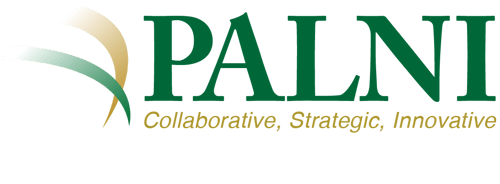Profiles
Q&A with open textbook author Scott Kaschner
%20(2).png?width=250&height=375&name=Linear%20Transformations%20mockup%208.5%20x%2011%20(683%20%C3%97%201024%20px)%20(2).png) In “Linear Transformations on Vector Spaces,” Butler University faculty Scott Kaschner, Chair and Associate Professor of Mathematics, and Amber Russell, Associate Professor of Mathematics, set out to redefine the way students learn linear algebra. The authors were awarded a PALSave Textbook Creation Grant to develop the project, and as a peer-reviewed, open educational resource—OER—it is entirely free to students and ready for use in any classroom.
In “Linear Transformations on Vector Spaces,” Butler University faculty Scott Kaschner, Chair and Associate Professor of Mathematics, and Amber Russell, Associate Professor of Mathematics, set out to redefine the way students learn linear algebra. The authors were awarded a PALSave Textbook Creation Grant to develop the project, and as a peer-reviewed, open educational resource—OER—it is entirely free to students and ready for use in any classroom.
Here, Kaschner shares his and Russell's experience with publishing through the PALNI Open Press, working with OER, and the impact it has on students.
Please tell us about your teaching background
I'm an Associate Professor of Mathematics and the Chair of the Department of Mathematical Sciences at Butler University. I teach just about everything: survey courses for non-majors, the calculus sequence, various statistics courses, linear algebra, pre-service teacher training, and topics courses for majors.
What encouraged you to apply for a Textbook Creation Grant and explore OER as an option for students and faculty?
There wasn't a textbook on the market that did exactly what we found our students needed. Also, most linear algebra textbooks cost several hundred dollars for a one-semester course. I felt guilty asking students to spend a lot of money on a book that wasn't exactly right for our course.
One of the most important benefits of OER is that it's free for both students and professors. When textbooks are expensive, students often delay or avoid buying them, putting them at a major disadvantage in the course. Not only is an open textbook free but it's immediately accessible. Students don't have to carry it around or wait for it to ship. They can access it from their phones or laptops. Another advantage is that an online version of a textbook is much easier to edit/revise than a print version, so as digital writing practices and platforms evolve, I could pretty easily revise or add to the textbook.
What are the biggest benefits of using OER versus traditional textbooks?
Number one: Versatility. I love that I can move things around as I see fit. Number two: Dollars.
Return to PALNI Open Press profiles.

